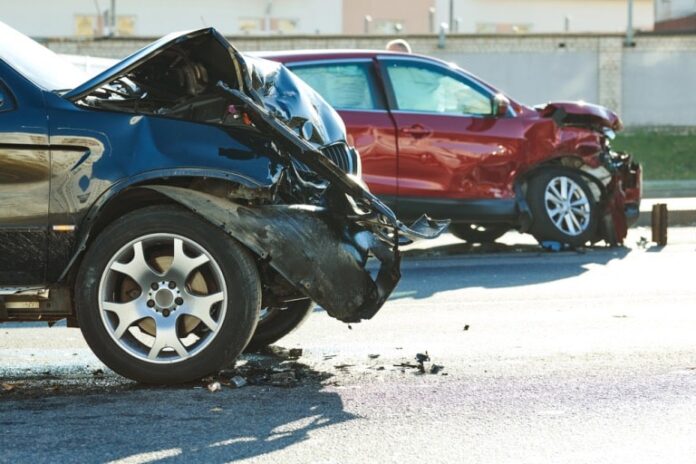Experiencing an incident on the road can be a jarring and stressful experience, leaving even the most composed individuals unsure of their next steps. Whether it’s a minor fender-bender or a more serious collision, knowing how to respond effectively can make all the difference in ensuring your safety, protecting your rights, and minimizing the aftermath’s impact. From securing the scene to documenting essential details, every action matters in navigating the situation smoothly.
In this post, we’ll guide you through the critical steps to take immediately after a road incident. These practical tips will help you stay prepared and confident, no matter what challenges the road throws your way. Read on.
Ensure Safety and Secure the Scene
Your immediate priority after an incident should be safety. Move yourself, passengers, and the vehicle to a safe location, such as the side of the road, if possible. Turn on hazard lights to alert other drivers and set up warning triangles to prevent further accidents. If someone is injured or the vehicles cannot be moved, stay put and call emergency services.
Avoid standing too close to traffic or damaged vehicles. A secure scene not only protects everyone involved but also preserves evidence that may be needed later. Taking swift action can reduce additional risks and make the situation more manageable.
Check for Injuries and Call Emergency Services
Assess yourself and others involved for injuries, no matter how minor they might appear. If anyone is hurt, call emergency services immediately, providing accurate details about the location and nature of the incident. While waiting for help to arrive, offer assistance only if you are trained to do so, as improper aid might worsen injuries.
Even if no injuries are visible, some may surface later, so it’s crucial to get a medical check-up. Quick medical attention ensures timely treatment and establishes records that could be vital for insurance or legal claims down the road.
Exchange Information with Involved Parties
Gathering accurate information from everyone involved is essential for resolving the situation later. Collect names, contact details, driver’s license numbers, and insurance information. Note the make, model, and license plate number of the vehicles involved. Avoid discussing blame or admitting fault during these exchanges, as this can complicate insurance claims or legal proceedings. Instead, stick to factual details and remain polite.
If there are witnesses, ask for their contact information as well, as their statements could support your case if disputes arise. Proper documentation during this step is invaluable for protecting your rights and expediting the resolution process.
Document the Scene Thoroughly
Capture detailed photographs of the scene from multiple angles, including vehicle damage, road conditions, and any visible injuries. Include street signs, traffic signals, and skid marks, as these can provide important context. Use your phone to record videos or take notes describing the sequence of events. Ensure that all evidence is time-stamped and organized.
Accurate documentation strengthens your case when dealing with insurance adjusters or legal representatives. Having clear and detailed evidence reduces disputes and ensures you’re prepared to present your side effectively in the aftermath of the incident.
Seek Legal Advice if Necessary
Some road incidents, particularly those involving disputes, injuries, or significant damages, may require legal assistance. Consulting a qualified lawyer can help you understand your rights and navigate complex legal processes. For instance, a pedestrian accident lawyer can help you file claims, negotiate with insurers, and ensure fair compensation if you were hit while walking. Legal professionals bring expertise in protecting your interests and handling disputes efficiently.
Acting promptly can prevent missed deadlines or errors in legal filings. Even if you think you don’t need a lawyer, a consultation can provide clarity and peace of mind during this challenging time. They will also evaluate the evidence you’ve collected, identify any legal avenues you may not have considered, and represent your case in court if necessary.
Notify Your Insurance Provider Promptly
Contact your insurance company as soon as possible to report the incident, providing them with the details you’ve collected. Be truthful and precise when explaining what occurred. Most insurance policies require prompt notification, and delays might jeopardize your claim. Share any evidence, such as photos and witness contact information, to support your account.
If you’re unsure how to navigate the claims process, ask for guidance to avoid mistakes. Proper communication with your insurer ensures smoother processing and prevents unnecessary complications, helping you focus on resolving the situation quickly.
Conclusion
Handling a road incident can be overwhelming, but taking the right steps ensures your safety, protects your rights, and simplifies the resolution process. By securing the scene, documenting details, and seeking professional help when needed, you can navigate the aftermath with confidence.
Remember, even minor incidents can have lasting implications, so don’t overlook the importance of thorough action. Whether it’s cooperating with your insurer or consulting a legal expert, each step plays a vital role in achieving a fair and stress-free outcome. Stay prepared, stay calm, and take control when faced with unexpected challenges on the road.
